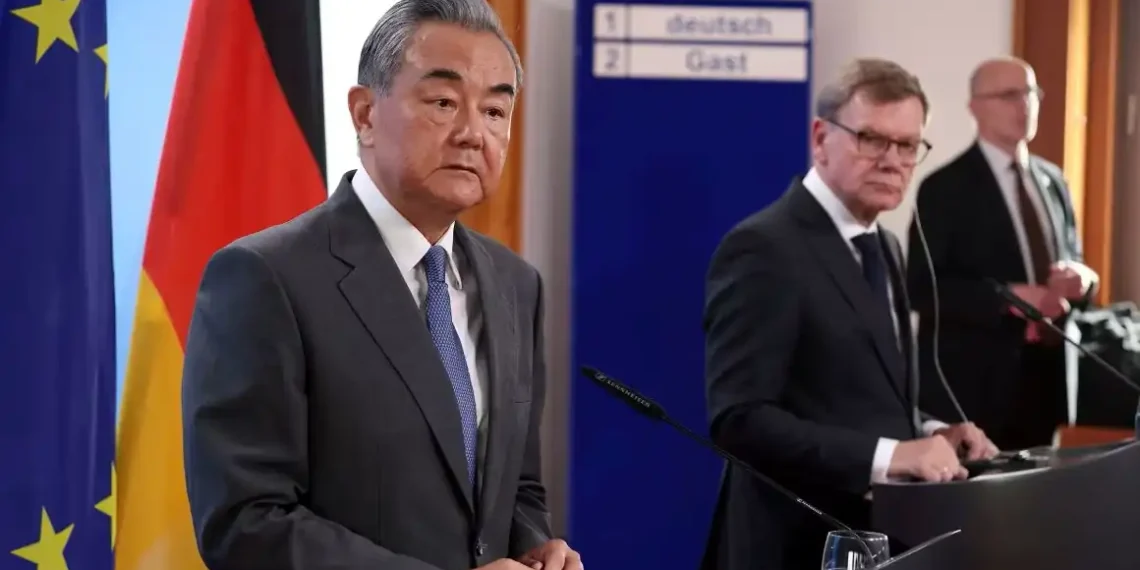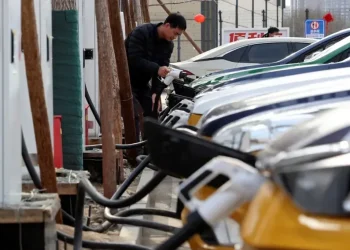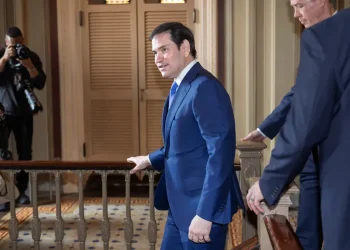China Privately Opposes Russian Defeat in Ukraine, EU Official Reveals
Behind Closed Doors: China Tells EU It Can’t Accept a Russian Defeat in Ukraine
In a revealing behind-the-scenes exchange, China’s Foreign Minister Wang Yi told EU foreign policy chief Kaja Kallas that Beijing “cannot accept” a Russian loss in its war against Ukraine. The admission, shared by an official briefed on the talks, contradicts China’s repeated public claims of neutrality in the ongoing conflict.
The conversation took place during a four-hour meeting in Brussels on Wednesday, which reportedly included candid but respectful discussions on a wide range of global issues, including cybersecurity, Taiwan, Middle East tensions, rare earth trade, and the war in Ukraine.
Geopolitical Stakes: China’s Strategic Concerns Over a Russian Defeat
According to the official, Wang Yi expressed concerns that a decisive Russian defeat could embolden the United States to redirect its strategic focus toward China, escalating tensions in the Indo-Pacific. The remarks suggest Beijing may view a prolonged war in Ukraine as geopolitically beneficial, as it diverts U.S. attention and resources.
This perspective aligns with what many foreign policy analysts have suspected: China’s interest in the war extends beyond diplomacy and into long-term strategic balance. Critics have long argued that China’s professed neutrality masks deeper motivations tied to its rivalry with the West.
China Reaffirms Neutrality in Public, Despite Reported Remarks
When asked about the report during a Friday press briefing, Chinese Foreign Ministry spokeswoman Mao Ning reaffirmed Beijing’s official stance on Ukraine:
“China is not a party to the Ukraine issue,” Mao said. “Our position is consistent and objective: we support negotiation, ceasefire, and peace. A prolonged Ukraine crisis serves no one’s interests.”
She added that China would continue to promote a political resolution “based on the will of the parties concerned” and work with the international community to play a “constructive role.”
A ‘No Limits’ Partnership That Raises Questions
Despite China’s repeated claims of impartiality, its close ties with Russia suggest a more complicated reality. Just weeks before Russia launched its full-scale invasion of Ukraine in 2022, Chinese President Xi Jinping and Russian President Vladimir Putin signed a “no limits” partnership agreement, signaling growing alignment.
Since then, political and economic cooperation between the two powers has deepened. While China has positioned itself as a potential mediator in the conflict, Beijing has also been accused of supporting Russia indirectly, particularly through the export of dual-use technologies.
Evidence of Chinese Drone Components in Russian Attacks
Last Friday, Ukraine’s Deputy Foreign Minister Andrii Sybiha posted images online showing debris from a Russian Geran-2 drone that struck Kyiv. One fragment allegedly showed that the drone’s parts were made in China on June 20.
Sybiha also revealed that a Chinese consulate building in Odesa suffered minor damage during the same wave of Russian strikes. “There is no better metaphor,” he wrote, “for how Putin continues to escalate his war while involving others—North Korean troops, Iranian weapons, and some Chinese manufacturers.”
He added that “security in Europe, the Middle East, and the Indo-Pacific is inextricably linked.”
China Denies Allegations of Direct Involvement
Beijing has denied repeated accusations that it is supplying near-military aid to Russia or allowing Chinese citizens to fight in the conflict. In response to reports that Chinese nationals were spotted fighting alongside Russian forces, Chinese officials urged citizens not to participate in military activities for any side.
Several Chinese companies, however, have already been sanctioned by Ukraine for allegedly providing Russia with drone parts and components used in missile production.
The Bigger Picture: A Global Conflict With High Stakes
While China continues to project a neutral stance publicly, recent remarks and mounting evidence suggest that Beijing’s strategic interests are deeply entangled in the Ukraine conflict. A weakened or defeated Russia could disrupt China’s geopolitical balance and leave it more exposed to U.S. pressure in the Indo-Pacific and beyond.
As the war in Ukraine grinds on into its third year, the global chessboard is shifting—and China’s quiet calculations are becoming harder to ignore.
This article was rewritten by JournosNews.com based on verified reporting from trusted sources. The content has been independently reviewed, fact-checked, and edited for accuracy, neutrality, tone, and global readability in accordance with Google News and AdSense standards.
All opinions, quotes, or statements from contributors, experts, or sourced organizations do not necessarily reflect the views of JournosNews.com. JournosNews.com maintains full editorial independence from any external funders, sponsors, or organizations.
Stay informed with JournosNews.com — your trusted source for verified global reporting and in-depth analysis. Follow us on Google News, BlueSky, and X for real-time updates.














